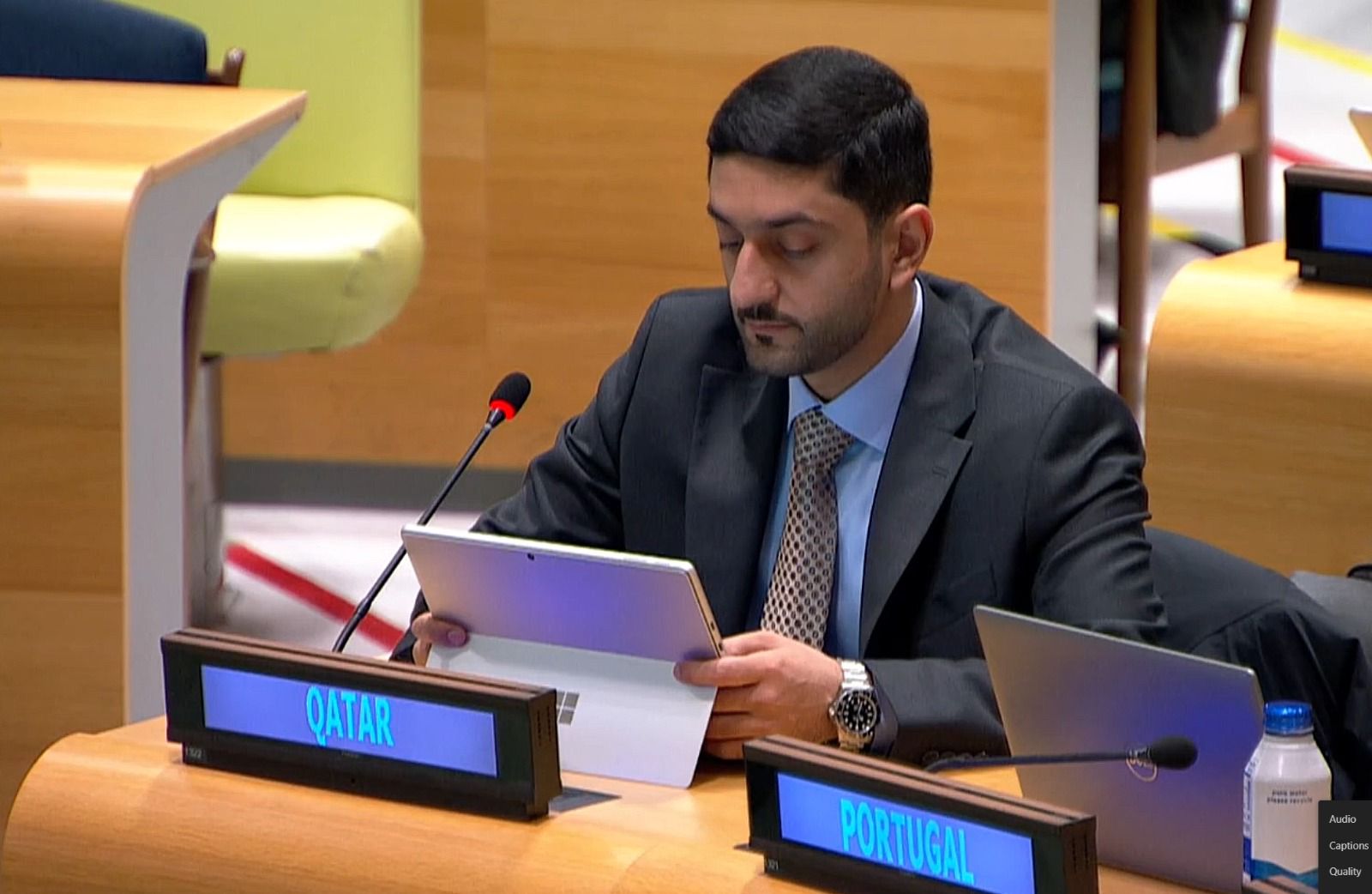Qatar Reaffirms Commitment to UN Charter, Calls for Collective Responsibility to Uphold International Law

New York, October 22, 2025
The State of Qatar has reaffirmed that respect for international law and the United Nations Charter remains a cornerstone of the international system based on justice and equality. It stressed that upholding the principles of the Charter is a shared responsibility of all UN Member States.
The remarks were delivered by Abdulaziz Jassim Al Marzouqi, member of Qatar's delegation to the 80th Session of the UN General Assembly, during a meeting of the Sixth Committee under Agenda Item 83: "Report of the Special Committee on the Charter of the United Nations and on the Strengthening of the Role of the Organization."
Al Marzouqi expressed Qatar's appreciation to the UN Secretary-General for his report (document A/80/33), highlighting the comprehensive review of the Special Committee's work and progress in updating the Repertory of Practice of United Nations Organs and the Repertoire of the Practice of the Security Council. He underscored the importance of these resources in documenting legal precedents and encouraging Member States to support their development and translation into all official UN languages.
Qatar reiterated its strong support for the mandate of the Special Committee and welcomed the progress made in discussions aimed at enhancing the effectiveness of the UN and promoting respect for the Charter's principles.
Al Marzouqi emphasised Qatar's strong commitment to the peaceful settlement of disputes, in accordance with Chapter VI of the Charter, particularly Article 33, which encourages mediation, good offices, and conciliation as primary tools for resolving international conflicts.
He noted that Qatar has actively applied these principles through its preventive diplomacy and mediation efforts, reflecting its deep commitment to the spirit and objectives of the Charter in promoting international peace and security.
Qatar also believes that reforming the United Nations and enhancing its institutional efficiency are essential steps toward fulfilling the Charter's goals, particularly in maintaining peace and ensuring justice and equality among nations, he said.
Al Marzouqi stressed the importance of revitalising the General Assembly to reinforce its central role within the UN system and to ensure balance among the main UN organs. He reiterated Qatar's support for continued efforts to reform the Security Council to make it more representative, transparent, and effective.
Addressing the issue of the veto power, he said it remains a central element in the reform process. He argued that restricting its use, especially in cases of grave crimes, would help prevent such crimes and bolster the credibility of the multilateral system.
He also called for improving the Security Council's working methods and decision-making mechanisms in line with the spirit and objectives of the UN Charter.
In conclusion, Al Marzouqi expressed Qatar's appreciation for the role of the UN Secretariat in supporting the work of the Special Committee, and reaffirmed Qatar's readiness to continue its active and constructive engagement in future sessions in pursuit of the noble goals of upholding the rule of law, safeguarding international peace and security, and strengthening the role of the United Nations in serving the world's peoples.

